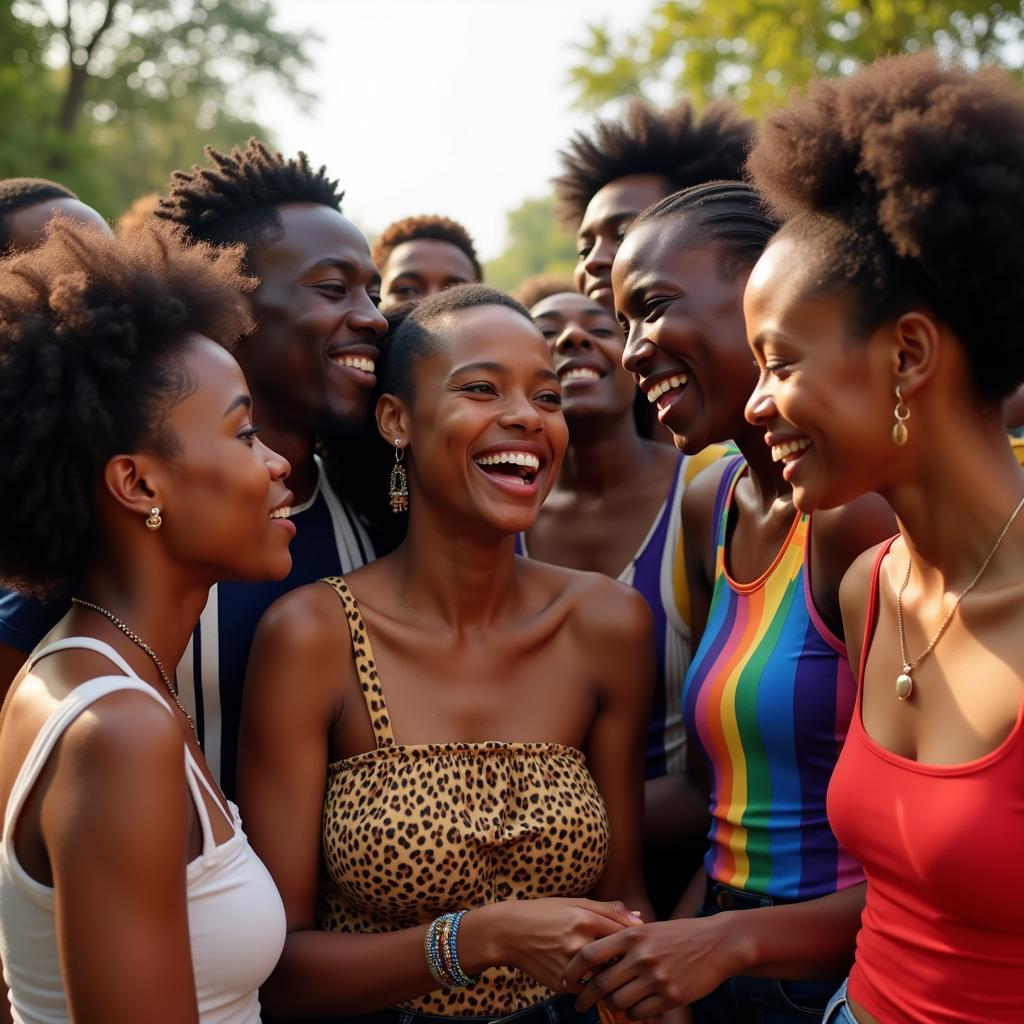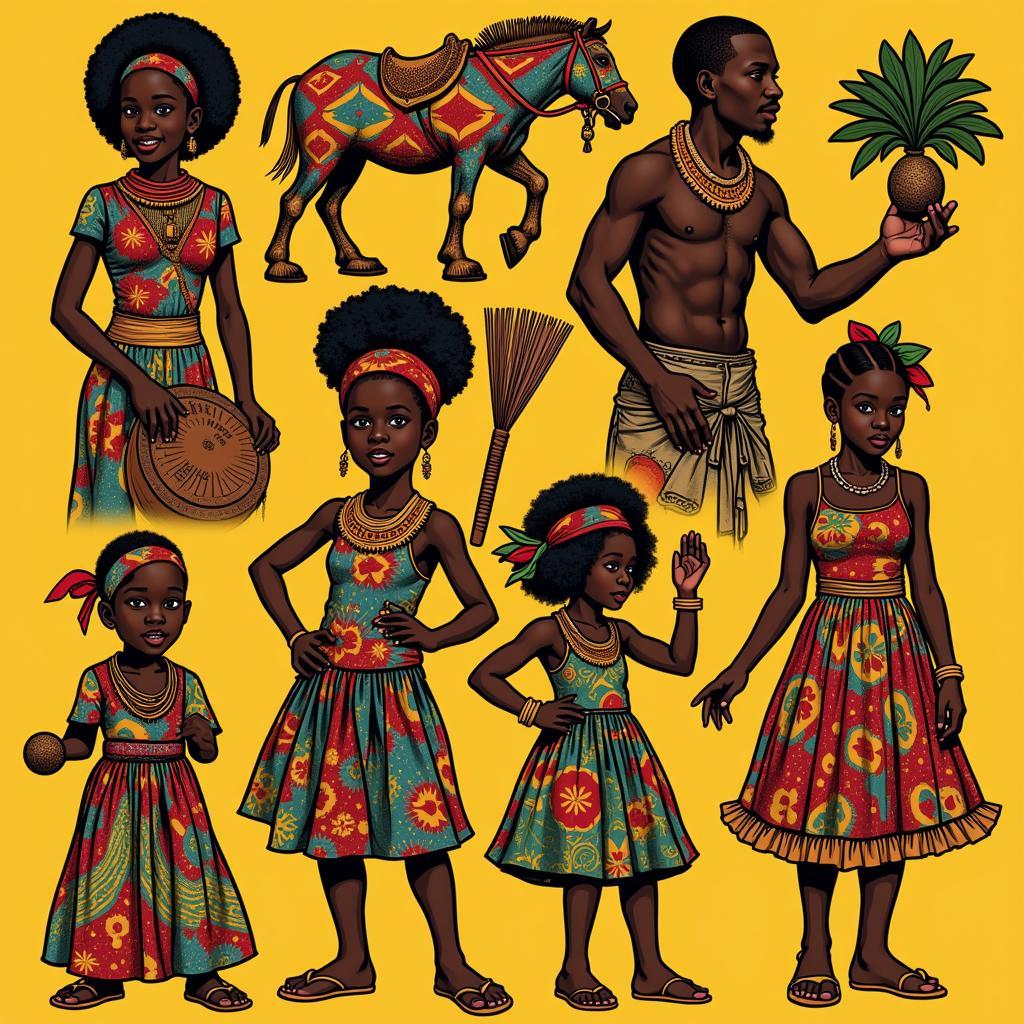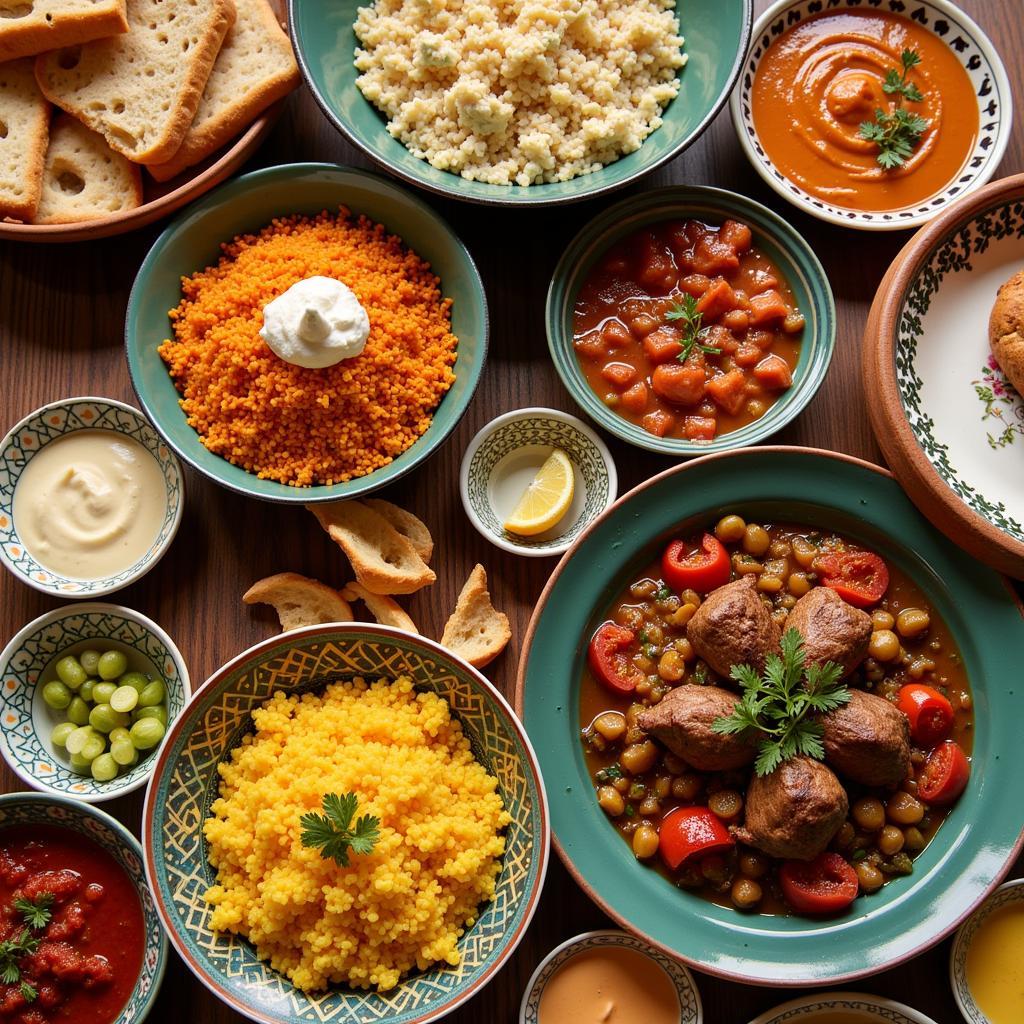The African Elephant God: Myths, Legends, and Symbolism
The African Elephant God holds a place of reverence and mystique in various African cultures. Representing strength, wisdom, and a deep connection to the natural world, this powerful deity appears in diverse forms and narratives across the continent. This article delves into the fascinating myths, legends, and symbolism surrounding the African elephant god, showcasing the rich tapestry of African spirituality and beliefs.
The Many Faces of the Elephant God
Unlike pantheons with clearly defined deities, traditional African religions often feature spirits and deities who take on different forms and attributes across regions and communities. This fluidity makes pinpointing a single “African elephant god” challenging. Instead, we find a captivating array of figures that embody the elephant’s majestic presence.
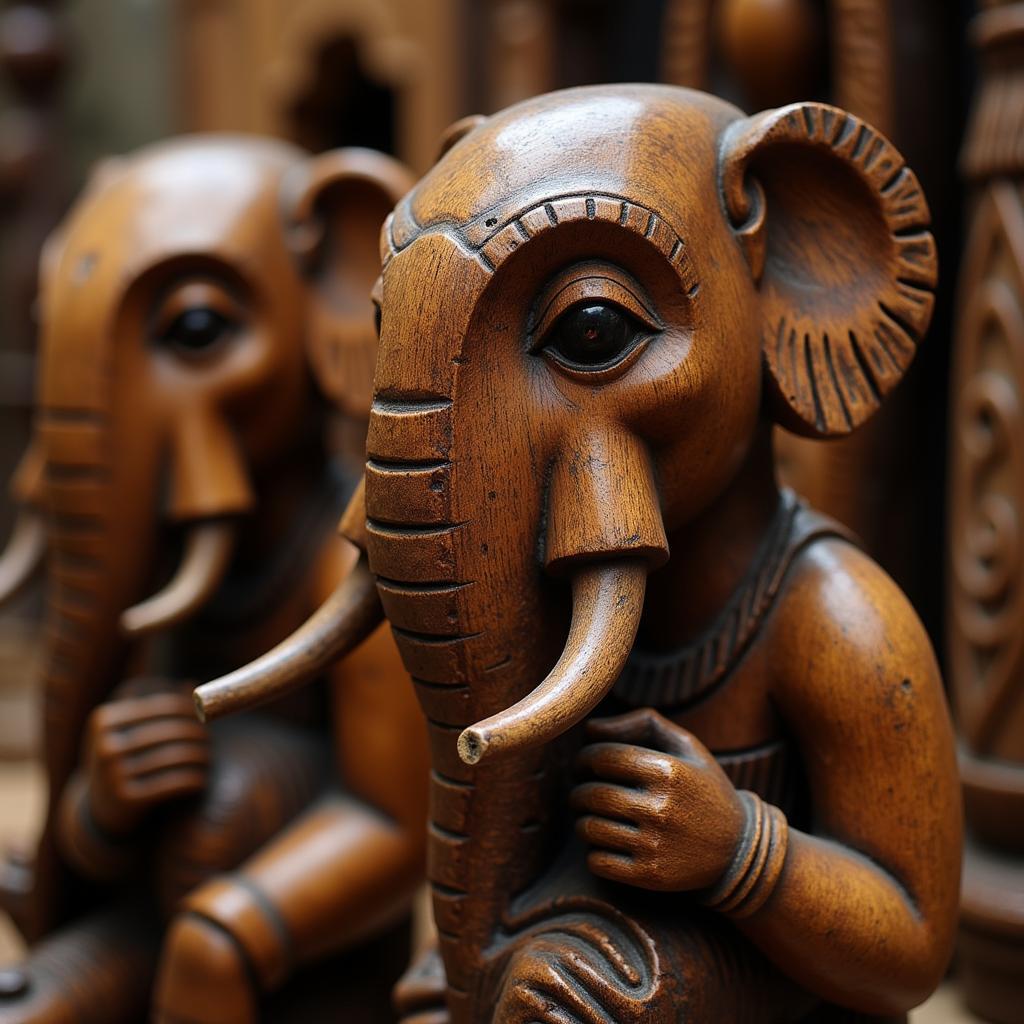 African Elephant God Carvings
African Elephant God Carvings
Ganesha: The Elephant-Headed Deity Beyond Africa
While not strictly an African deity, Ganesha, the beloved Hindu god with an elephant head, deserves mention due to his widespread popularity. Ganesha, revered as the remover of obstacles and patron of arts and sciences, embodies wisdom, knowledge, and new beginnings. Although originating in India, Ganesha’s presence has transcended geographical boundaries, resonating with people across the globe, including parts of Africa.
Elephant Spirits and Animal Totems in African Cultures
Across Africa, numerous cultures revere elephants as powerful totems or spiritual beings. These animals hold significant meaning in various traditions:
-
Strength and Power: The elephant’s imposing size and strength have long been associated with power, both physical and spiritual. In many cultures, the elephant represents leadership, royalty, and the ability to overcome obstacles.
-
Wisdom and Intelligence: Elephants are highly intelligent creatures with remarkable memories. They are often seen as symbols of wisdom, knowledge, and the ability to navigate life’s complexities.
-
Family and Community: Elephants live in close-knit herds led by matriarchs. This social structure resonates with many African societies, making the elephant a symbol of family, community, and the importance of ancestral knowledge.
-
Connection to Nature: As keystone species, elephants play a vital role in maintaining the balance of their ecosystems. Their presence signifies a deep connection to the natural world, emphasizing the interdependence of all living things.
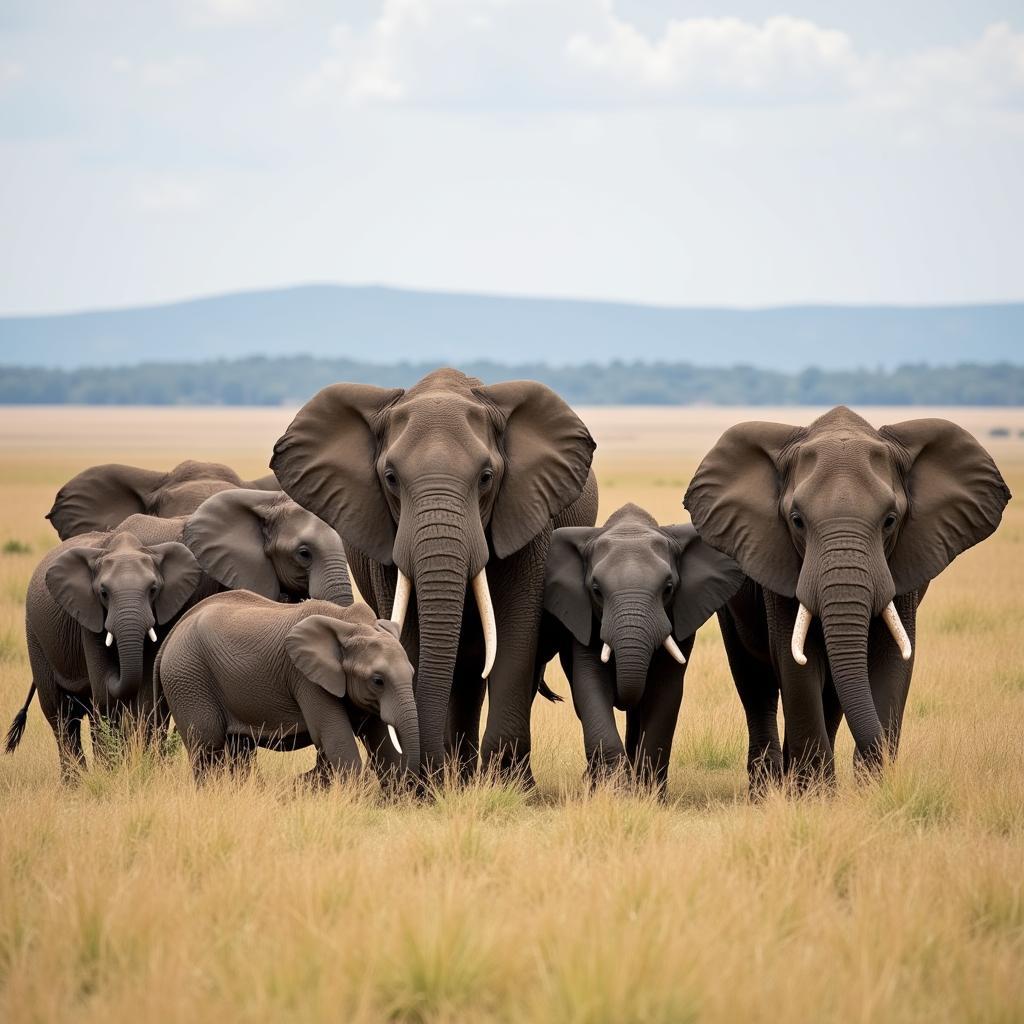 African Elephant Family in the Savannah
African Elephant Family in the Savannah
Folktales and Legends: The Elephant’s Enduring Presence
African folktales and legends often feature elephants as wise and powerful characters. These stories, passed down through generations, offer insights into cultural values, beliefs, and the human relationship with nature.
For instance, in some tales, the elephant serves as a guardian spirit, protecting communities from harm or guiding lost travelers. Other stories portray the elephant as a trickster figure, highlighting the animal’s intelligence and ability to outsmart even the most cunning adversaries.
The Elephant God in Art and Ritual
The elephant god’s significance transcends mythology and permeates various aspects of African art and ritual:
-
Masks and Sculptures: Intricately carved masks and sculptures depicting elephants or elephant-human hybrids are common in many African cultures. These artistic representations serve as powerful symbols of the elephant god’s attributes, used in ceremonies, dances, and rituals. You can discover more about the symbolism and artistry of African masks in this article about the African giraffe mask.
-
Music and Dance: The rhythmic drumming and powerful movements of traditional African dances often evoke the spirit of the elephant. These performances celebrate the animal’s strength, grace, and connection to the earth.
-
Offerings and Sacrifices: In some cultures, offerings of food, drink, or other symbolic items are made to honor the elephant god and seek its blessings. These rituals demonstrate the deep reverence for the animal’s spiritual power.
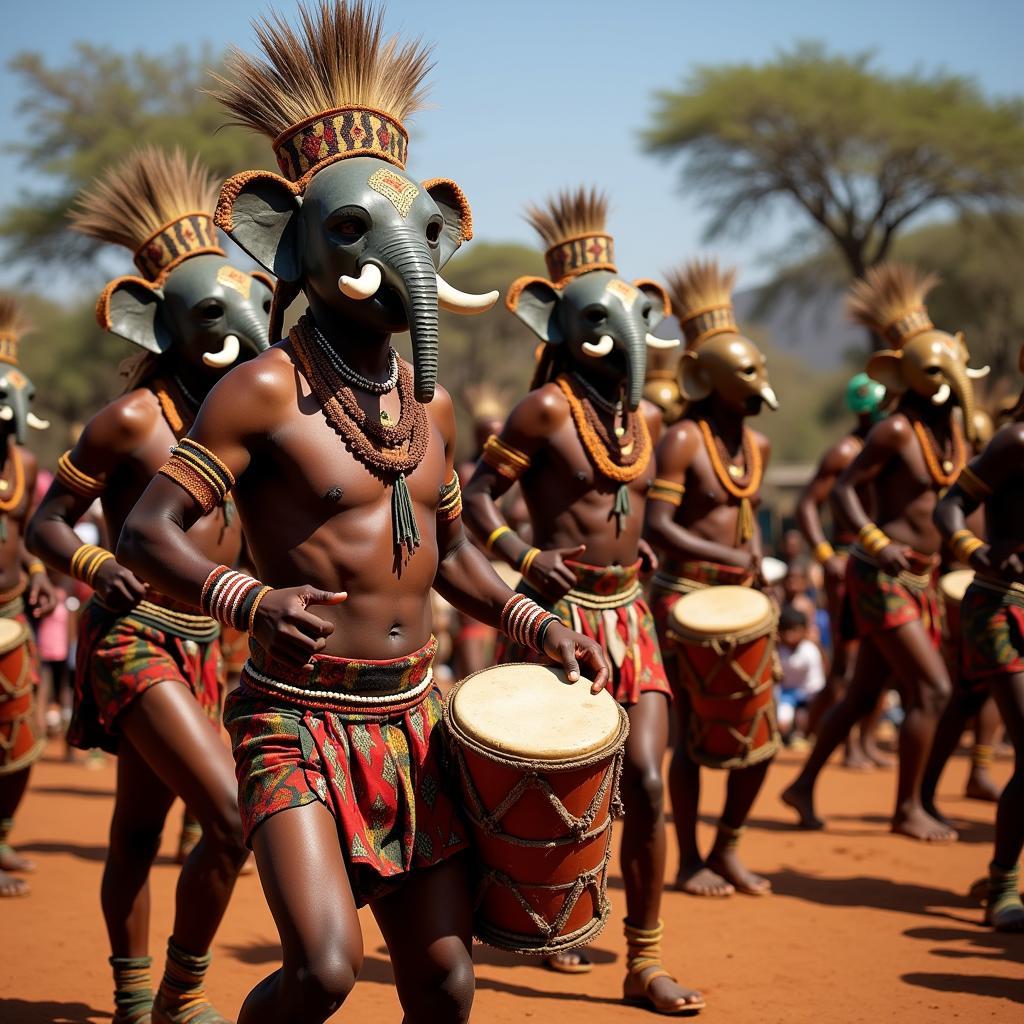 African Tribal Dance Ceremony
African Tribal Dance Ceremony
The African Elephant God: A Legacy of Wisdom and Power
The African elephant god, in its various forms, embodies the rich tapestry of African spirituality and beliefs. Representing strength, wisdom, family, and a deep connection to the natural world, the elephant god continues to inspire awe and reverence across the continent. From ancient myths and legends to contemporary art and rituals, the elephant’s presence in African culture serves as a powerful reminder of the enduring bond between humanity and the animal kingdom. To further explore the wonders of African wildlife, consider embarking on one of the African home adventure tours and safaris to witness these majestic creatures in their natural habitat.
FAQ
1. Is there a single, definitive African elephant god?
No, unlike pantheons with clearly defined deities, traditional African religions often feature spirits and deities with fluid forms and attributes. This makes pinpointing a single “African elephant god” challenging.
2. What are some of the symbolic meanings associated with elephants in Africa?
Elephants symbolize strength, power, wisdom, intelligence, family, community, and a deep connection to nature.
3. How is the elephant god depicted in African art?
The elephant god appears in various art forms, including intricately carved masks, sculptures, and intricate designs woven into textiles.
4. Are there any rituals or ceremonies dedicated to the elephant god?
Yes, some cultures perform rituals and ceremonies involving music, dance, offerings, and sacrifices to honor the elephant god and seek its blessings.
5. What can we learn from the reverence for the elephant god in Africa?
The enduring reverence for the elephant god highlights the importance of respecting nature, honoring ancestral wisdom, and recognizing the interconnectedness of all living things.
Discover More
If you enjoyed this exploration of the African elephant god, you might also find these articles fascinating:
Need Help?
For any inquiries or assistance regarding African culture, history, or travel, please don’t hesitate to contact us.
Phone: +255768904061
Email: kaka.mag@gmail.com
Address: Mbarali DC Mawindi, Kangaga, Tanzania
Our dedicated customer support team is available 24/7 to assist you.
